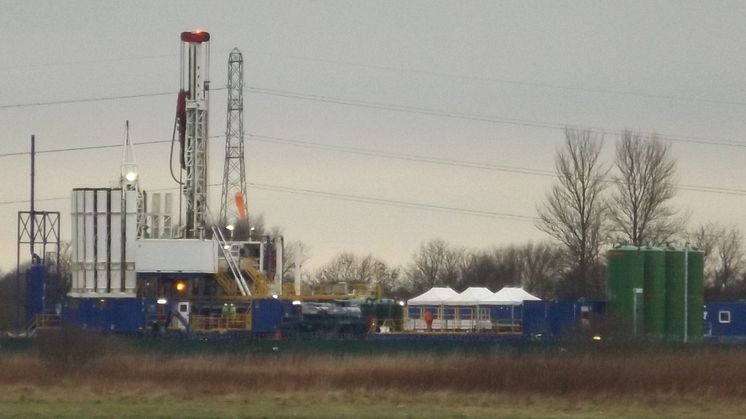
Press release -
The social impact of hydraulic fracturing on communities
Northumbria University has been awarded a share of more than £460,000 to lead the first UK study of its kind into the social and economic impact of hydraulic fracturing on communities.
Hydraulic fracturing, also known as fracking, is a controversial technology that enables the extraction of gas from shale. Hydraulic fracturing is widely used in North America but is in a much earlier stage of development in the UK. Anti-fracking groups believe it represents a serious risk to public health and the natural environment and a backwards step towards fossil fuels.
While there has been significant media coverage about the impact of hydraulic fracturing on the natural environment, there has been less research into the socio-economic impact on communities.
New research funded by the Natural Environment Research Council (NERC) and the Economic and Social Research Council (ESRC) and led by Professor Paul Stretesky from the department of Social Science at Northumbria University, aims to do just that through a project exploring the ‘social construction’ of unconventional gas extraction.
Stretesky will work in collaboration with Anna Szolucha, a postdoctoral research scholar at Northumbria, Damien Short, a human rights scholar from University London and Laurence Stamford an engineer from the University of Manchester.
Speaking after the announcement, Professor Stretesky said: “We are thrilled to receive this funding from NERC and ESRC because it will allow us to better understand the social, economic and environmental impact of hydraulic fracturing –something that has not been adequately studied in the UK, but also the social meanings and interpretations of the ‘fracking’ process.”
Professor Stretesky and his team plan to investigate the impact from both the technical process of hydraulic fracturing as well as its social interpretations. They aim to answer a number of key questions and generate findings, which will stimulate a more informed and thoughtful debate, among communities, statutory bodies and policy-makers about the benefits and burdens of hydraulic fracturing.
Professor Stretesky’s new project is one of seven research consortia funded under the ‘Unconventional Hydrocarbons in the UK Energy System: Environmental & socio-economic impacts & processes’ research programme. This £8m programme aims to provide an independent scientific evidence base to understand potential environmental and socio-economic impacts of unconventional hydrocarbon extraction.
NERC is the driving force of investment in environmental science in the UK, advancing the frontier of environmental science by commissioning new research, infrastructure and training that delivers valuable scientific breakthroughs.ESRC is the UK's largest funder of research on the social and economic questions facing us today. Their research shapes public policy and contributes to making the economy more competitive, as well as giving people a better understanding of 21st century society.
NERC and ESRC are parts of UK Research & Innovation, a new organisation that brings together the UK's seven research councils, Innovate UK and Research England, to maximise the contribution of each council and create the best environment for research and innovation to flourish. The vision is to ensure the UK maintains its world-leading position in research and innovation.
Dr Beth House, NERC Head of Research for Earth and Energy said: “Meeting future energy demand for the UK will require new approaches and technologies. These may include making use of the Earth's subsurface including the unconventional extraction of hydrocarbons.
“The purpose of the research programme is to provide current independent scientific evidence to understand the potential environmental and socio-economic impacts of the unconventional extraction of hydrocarbons.
“This research is required to provide new scientific knowledge and impartial evidence to inform future decisions in policy and approach.”
Social Sciences at Northumbria is a community that equips students to make a positive social change, become critical thinkers, problem solvers, and to challenge what they think, see and hear. Northumbria’s academics are researching in partnership with communities and global organisations, voluntary sector bodies and people who are changing the society in which we work. Their research feeds into their teaching, allowing students to focus on developing the skills, tools, techniques, and knowledge to embark upon a career that makes a difference.
Northumbria’s research in Social Sciences sits within our multidisciplinary Centre for Environmental and Global Justice theme, giving students the opportunity to work with academics in their focus on justice for people, the planet, and agendas for development that take account of current and future generations.
Northumbria offers a range of course in Social Sciences. To find out more about studying at Northumbria come to one of our upcoming Open Days or go to: www.northumbria.ac.uk
Topics
Northumbria is a research-rich, business-focused, professional university with a global reputation for academic excellence. To find out more about our courses go to www.northumbria.ac.uk
If you have a media enquiry please contact our Media and Communications team at media.communications@northumbria.ac.uk or call 0191 227 4604.






